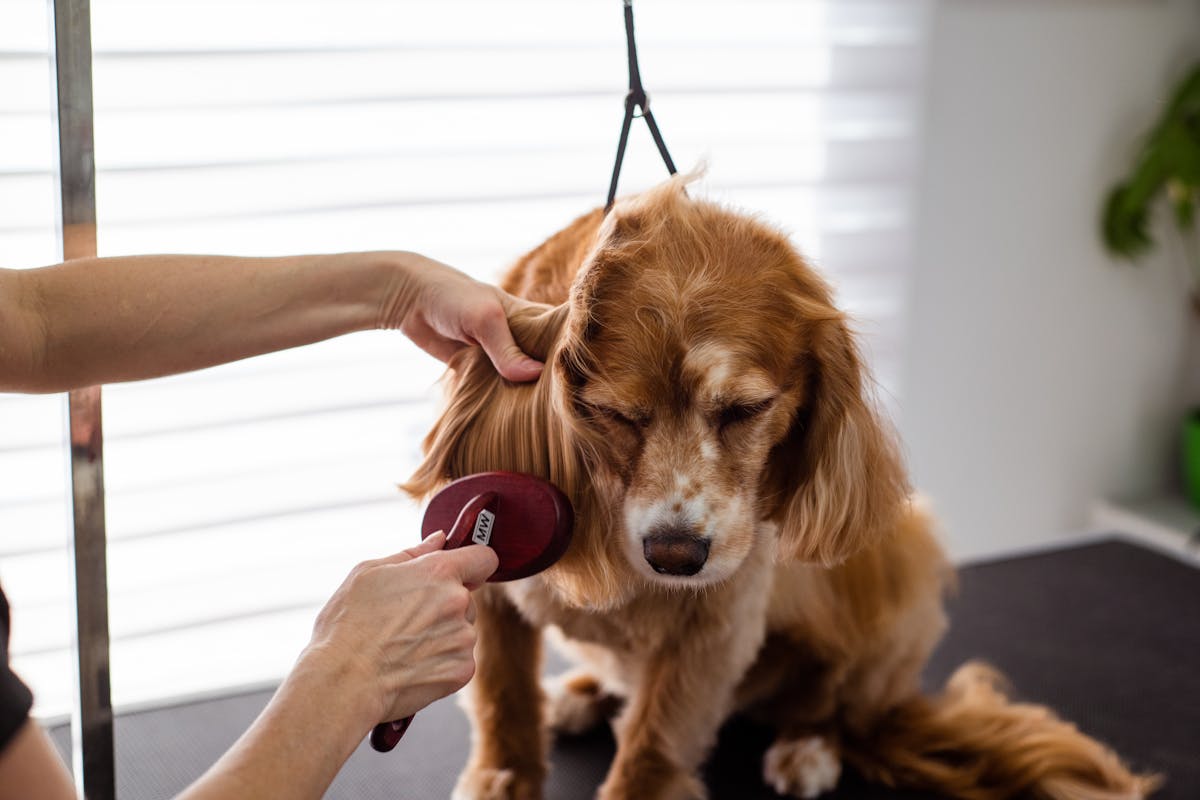The Cocker Spaniel is renowned for its gentle demeanor and striking appearance by most owners and is one of the most beloved dog breeds worldwide.
Its affectionate nature, intelligence, and adaptability make it a popular choice for families and individuals alike. Originating from hunting traditions, these dogs have seamlessly transitioned into loyal companions and show-stopping pets.
Table of Contents
ToggleThe History and Origin of Cocker Spaniels
Cocker Spaniels have roots tracing back to 14th-century Spain, where the term Spaniel was coined. The breed gained prominence in England as hunting dogs, specifically for flushing out woodcock birds—hence the name “Cocker.”
Over time, two distinct types emerged: the American Cocker Spaniel and the English Cocker Spaniel.
The English variety is slightly taller and leaner, whereas its American counterpart boasts a more rounded skull and a shorter muzzle. Both breeds were officially recognized by kennel clubs in the late 19th century, solidifying their status as household favorites.
Physical Characteristics of the Cocker Spaniel
The Cocker Spaniel possesses a medium-sized, sturdy build with an undeniable elegance. Standing 14 to 17 inches tall and weighing between 20 to 30 pounds, they exhibit well-balanced proportions.
Their silky, feathered coat—available in a variety of hues such as golden, black, chocolate, and parti-color—adds to their regal appearance.
Notably, their expressive, almond-shaped eyes and long, pendulous ears give them an endearing look that captures hearts effortlessly.
The Temperament and Personality Traits of Cocker Spaniels
The Cocker Spaniel dog breed is widely adored for its sweet and gentle disposition. They are affectionate, cheerful, and thrive in human company, making them excellent companions for families with children.
While they are typically friendly, Cockers can display a sensitive side, requiring patience and positive reinforcement in training. Their playful and eager-to-please nature makes them an ideal choice for first-time pet owners.
Training and Socialization Needs
Proper training is crucial for shaping a well-behaved Cocker Spaniel. These dogs are highly intelligent, which makes them quick learners, but their sensitive temperament necessitates gentle training methods.
Positive reinforcement techniques, like treats and praise, work wonders. Early socialization is equally essential, as it helps Cocker Spaniels develop confidence around people, pets, and new environments.
Exposure to various sights, sounds, and experiences during their puppyhood will mold them into sociable and adaptable adults.
Keeping a Cocker Spaniel Active
Despite their cuddly nature, Cocker Spaniels are active and energetic dogs with moderate exercise needs. Regular physical activity is vital to keep them healthy and happy.
Ideally, they require 1 to 2 daily walks, coupled with interactive playtime or agility training. Their hunting lineage means they also enjoy activities like fetching, running, or exploring open spaces.
Mental stimulation, such as puzzle toys or obedience challenges, is equally important to prevent boredom, which can lead to destructive behavior.
Maintaining Their Iconic Coat
The Cocker Spaniel’s luscious coat demands consistent grooming to stay clean, healthy, and tangle-free. Regular brushing—at least 3 to 4 times per week—prevents matting, while monthly baths ensure their silky fur remains glossy.
Due to their long ears, Cocker Spaniels are prone to ear infections, making routine ear cleaning imperative.
Trimming their nails every few weeks, brushing their teeth regularly, and scheduling professional grooming sessions every 6 to 8 weeks complete their maintenance routine.
Common Health Concerns in Cocker Spaniels
While Cocker Spaniels are generally robust, they are predisposed to certain hereditary conditions. Some of the most common health issues include:
- Ear Infections: Their floppy ears trap moisture and debris, creating an ideal environment for bacteria.
- Hip Dysplasia: A genetic condition affecting their hip joints, leading to discomfort and mobility issues.
- Progressive Retinal Atrophy (PRA): A degenerative eye disease that can result in blindness.
- Allergies: Cocker Spaniels are prone to skin allergies, which can cause itching and irritation.
- Obesity: Overfeeding or lack of exercise can lead to weight gain, exacerbating other health problems.
Regular veterinary check-ups, a balanced diet, and proper grooming can help mitigate these risks, ensuring your Cocker Spaniel remains in prime condition.
Feeding Your Cocker Spaniel
Providing a nutritious and well-balanced diet is fundamental to a Cocker Spaniel’s overall health. High-quality commercial dog food, rich in protein, healthy fats, and essential vitamins, is ideal.
Portion control is crucial, as Cocker Spaniels have a propensity to overeat, which can lead to obesity. Feeding schedules should align with their activity level, with adult dogs typically requiring 1 to 2 cups of food per day, split into two meals.
Consult your veterinarian for personalized dietary recommendations, especially if your dog has allergies or weight concerns.
Cocker Spaniels as Family Pets: Are They the Right Fit?
Cocker Spaniels excel as family pets due to their affectionate and adaptable nature. They bond deeply with their owners and enjoy being part of household activities.
Their gentle demeanor makes them great with children, while their playful energy ensures endless entertainment. However, they do not tolerate being left alone for extended periods, as they thrive on companionship.
For families who can dedicate time and attention, a Cocker Spaniel proves to be a loving and loyal addition to the home.
Differences Between American and English Cocker Spaniels
Though closely related, American and English Cocker Spaniels exhibit notable differences:
- Appearance: The American Cocker has a more compact body, domed head, and shorter muzzle, while the English Cocker appears taller and more athletic.
- Coat: American Cockers often have thicker, longer coats requiring more intensive grooming.
- Temperament: Both share loving personalities, but American Cockers tend to be slightly more playful, whereas English Cockers are often described as more work-oriented.
Understanding these distinctions can help potential owners choose the variety that best fits their lifestyle.
Conclusion
Cocker Spaniels embody the perfect blend of charm, intelligence, and loyalty. Whether as energetic playmates or loving lapdogs, they bring joy to every home they grace.
With their iconic looks and gentle souls, it is no wonder they remain one of the most cherished dog breeds. By understanding their needs and providing the right care, owners can ensure that these delightful companions thrive for years to come.






